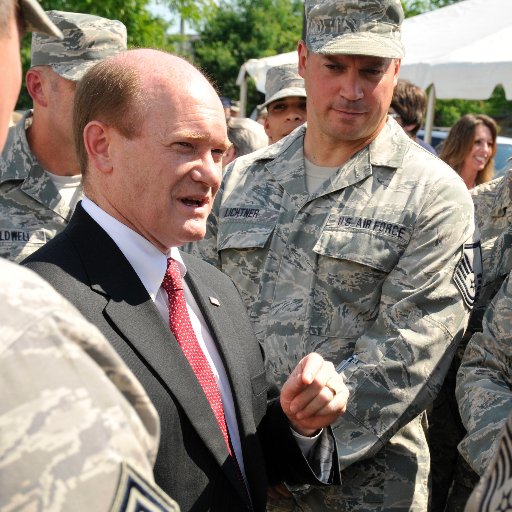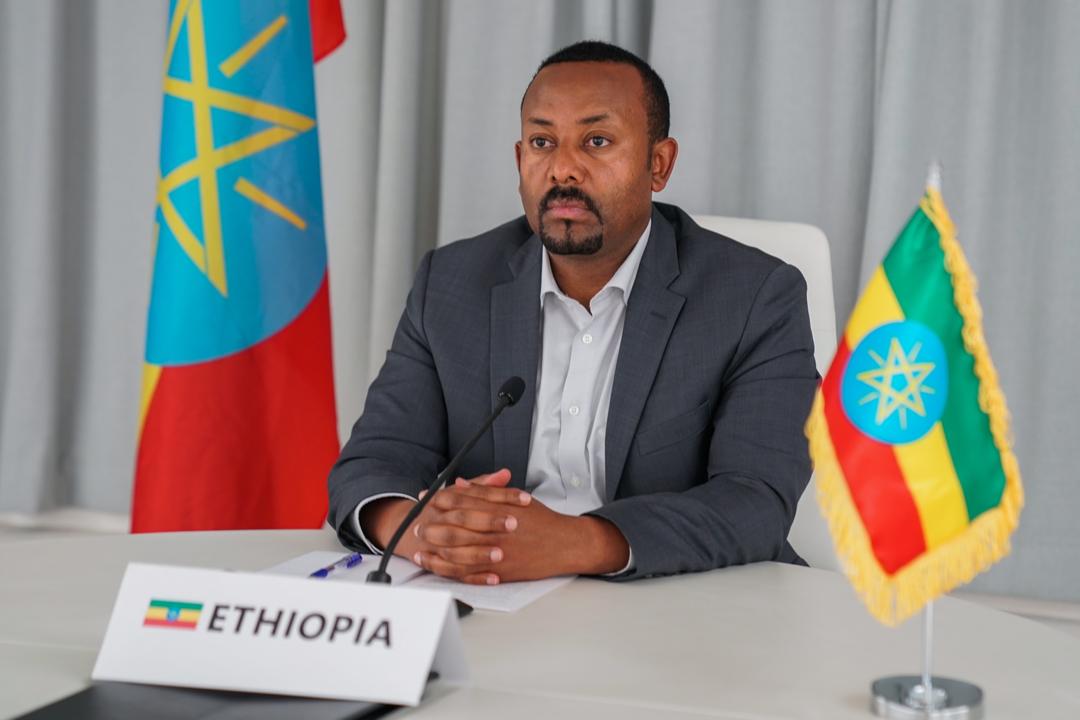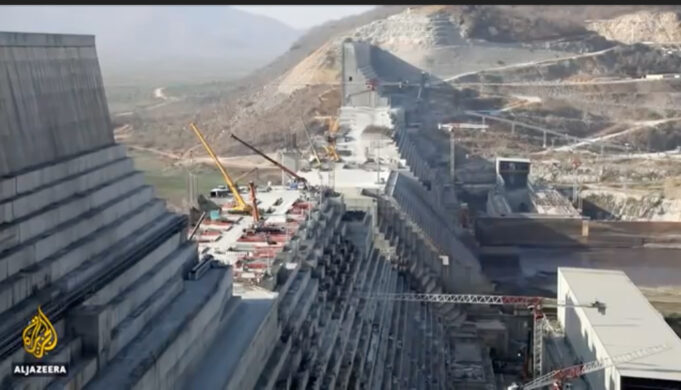
U.S. President Joe Biden has dispatched Senator Chris Coons (D-Del.) to Ethiopia to meet with Ethiopian Prime Minister Abiy Ahmed to express the administration’s “grave concerns” about the humanitarian crisis in the country’s Tigray region. Sudan and Egypt, because of their water dependence on the Nile River, asked the Biden administration, the UN and the African Union to intervene in the growing dispute over the completion of the Grand Ethiopian Renaissance Dam (GERD).

Photo:Twitter
According to Sen. Coons, “The United States is gravely concerned by the deteriorating situation in the Tigray, which threatens the peace and stability of the Horn of Africa region.”
The Ethiopian government opposes calls by Sudan for outside mediators including the United States in the ongoing dispute over Ethiopia’s construction of the massive hydroelectric dam on the Nile River, according to U.S News & World Report. An Ethiopian official said recently that his government opposes calls by Sudan and Egypt, who have met twice, for outside mediators including the United States in the ongoing dispute over Ethiopia’s construction of the dam.
Secretary of State Antony Blinken recently announced the U.S. would provide an additional $52 million in assistance to respond to the humanitarian crisis. According to the Associated Press, the U.S. has provided a total of nearly $153 million in humanitarian assistance since the crisis began. Estimates suggest nearly 4.5 million people in Tigray need humanitarian assistance and nearly 62,000 refugees have fled to Sudan.
Ethiopia opposes mediation by outside parties even though the African Union is a welcome arbiter, Dina Mufti, spokesman for Ethiopia’s Ministry of Foreign Affairs, told reporters.

Photo:Twitter
“The tripartite talks between Ethiopia, Sudan, and Egypt on the Grand Ethiopian Renaissance Dam should be concluded between the three countries themselves, not through mediators,” he said. “The role of mediators is facilitating the talks, not spoon-feeding the process.”
The dam is near completion, but not without ruffling a few feathers along the way, most notably, Egypt. Egyptian President Abdel-Fattah el-Sissi recently told reporters that, “we need to turn Ethiopia’s goodwill into formal agreements” and ensure the nearly completed Ethiopian dam is not used for “political purposes.”
The general turned president did not elaborate, saying only that Egypt has seen “positive signs” from Ethiopia’s government during the process.
Construction of the dam began in 2011. It was formally known as the Millennium Dam and during the planning stage was called Project X. It is considered Africa’s largest hydropower project and the eighth largest in the world. Upon completion it will generate 6,000 megawatts of electricity and its reservoir will be able to hold over 70 billion cubic meters of water, which is nearly equal to the flow of the Nile River in one year. The dam is located in the Benishangul-Gumuz region of Ethiopia, on the Blue Nile River, to the east of Sudan. The project, a source of national pride for many Ethiopians, is owned by the Ethiopian Electric Power Corporation (EEPCO).
Unlike President Trump who called Africa a “sh**hole” continent, Biden began his Africa policy addressing African leaders at the Africa Union Summit. During Biden’s first speech to an international forum as the U.S. president he said during the video address, “The United States stands ready now to be your partner in solidarity, support and mutual respect.”
According to brookings.edu, Biden is committed, during his first year in office, to convening a global “Summit for Democracy.” “The Biden commitment to democracy can deepen American partnerships with African governments. We can learn from the African experience while sharing the causes of the recent assault on the U.S. Capitol and what it means for the future of democracy in the United States,” the publication reported.
Brookings.edu also suggests the Biden administration could convene regular U.S. African Leaders Summits like the one held by President Obama in 2014. “These would offer an opportunity to focus on the many common priorities, including advancing democracy, human rights, and good governance.”
The international summit was held in Washington, D.C., from August 4-6. Leaders from 50 African countries attended the gathering. It primarily focused on trade, investment and security of the continent.
Some may beg to differ with the Brookings Institute and suggest if there is a summit it should be held in Africa. The continent has the largest mineral industries in the world. For many African countries, though most Africans receive little in the way of compensation, mineral exploration and production constitute a significant part of their economies. The continent is rich in oil and mineral reserves. It is home to five of the world’s top oil producing countries, with an estimated 57 percent of Africa’s export earnings from hydrocarbons.
In fact, the continent ranks first or second in reserves of bauxite, cobalt, industrial diamonds, phosphate rock, platinum-group metals, vermiculite, and zirconium. Its biggest mining resource is gold.
Biden is reportedly supportive of the African Continental Free Trade Area agreement (AfCFTA) which kicked off in January. AfCFTA is a landmark deal that aims to bring together 54 African countries with a population 1.3 billion people and a combined GDP of over USD $3 trillion.
Once the agreement’s ambitious goals are realized it has the potential to help African member states establish new cross-border value chains, encourage foreign investment, and better insulate the continent’s economies from future global shocks.
If the continent contains the majority of the world’s mineral and energy resources, the world’s largest trading block, and the UN’s largest voting bloc, it stands to reason that a unified Africa, even during the pandemic, should be dictating terms not looking for assistance.
Follow @JehronMuhammad on Twitter.













